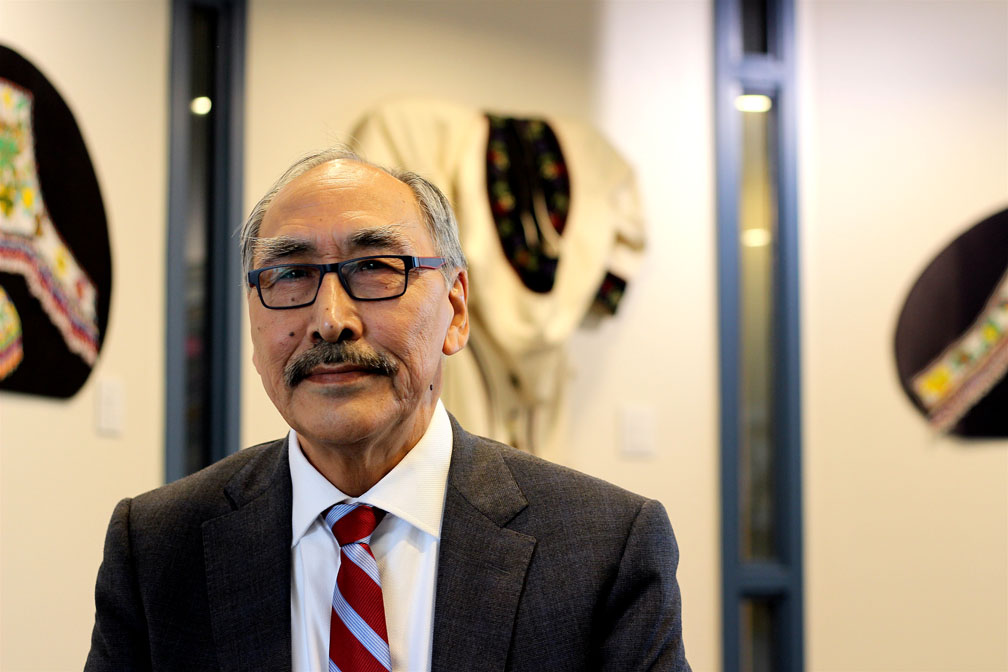Nunavut will double spending on employee language courses, premier says
The funding boost is part of a long-term effort to eventually make Inuktut the working language of Nunavut's government.

Government of Nunavut employees will get more opportunities to work on their Inuktut language skills, thanks to a recent doubling of funds for Inuit language training, Nunavut Premier Paul Quassa announced May 30.
That’s in line with a priority in the government’s mandate document, Turaaqtavut, to “promote the Inuit language as the working language of the Nunavut public service,” Quassa said in a minister’s statement.
“Our ultimate goal is to have Inuktut as the working language of the Nunavut government,” Quassa told Nunatsiaq News, adding that this is not a new goal.
“That vision was made back in 1999 when Nunavut was being created,” he said. “This doubling of the funding, it enhances that vision.”
In the last fiscal year, 159 GN employees took 21 Inuktut courses run through the Department of Executive and Intergovernmental Affairs.
That was in Iqaluit, Arviat, Cambridge Bay, Gjoa Haven, Igloolik, Pangnirtung and Rankin Inlet.
“We have to ensure that we have training funds available to make sure the ultimate goal will be met,” he said.
Of those courses from 2017-18, three were advanced courses led by elders.
There was also a keyboarding and computing course, along with beginner and intermediate courses in Inuktitut and Inuinnaqtun, said Quassa, who described the range of courses as running from “foundational” to “professional.”
He called the funding increase a step towards reaching language requirements outlined in both Nunavut’s Inuit Language Protection Act and Official Languages Act. The new 2018-19 money comes from the federal government, but flows through the Department of Culture and Heritage.
The courses are not only for people who can’t speak Inuktut, but also for Inuktut speakers who want to improve their skills.
“It’s not just focused on those who can’t speak. We also want to enhance their ability to speak more, even if they can,” he said.
Outside of Iqaluit, it’s more common to have Inuktut used in Nunavut government offices, Quassa said.
“A higher percentage is being spoken in Inuktitut at the community level, in the other communities,” he said.
Baker Lake MLA Simeon Mikkungwak asked May 31 if the new funding means people in the other 18 Nunavut communities will get more language training.
Quassa replied that training will be made available in all communities, and for all GN staff who want it. Some of that could be through online learning, he said.
“The reasoning is that the majority of the population in the territory speak primarily in Inuktitut. We have to remember who our clientele is, so this is our goal here,” he said.
Training will include a program for employees who “don’t understand a word of Inuktitut,” while other courses will focus on increasing fluency for both spoken and written Inuktut.